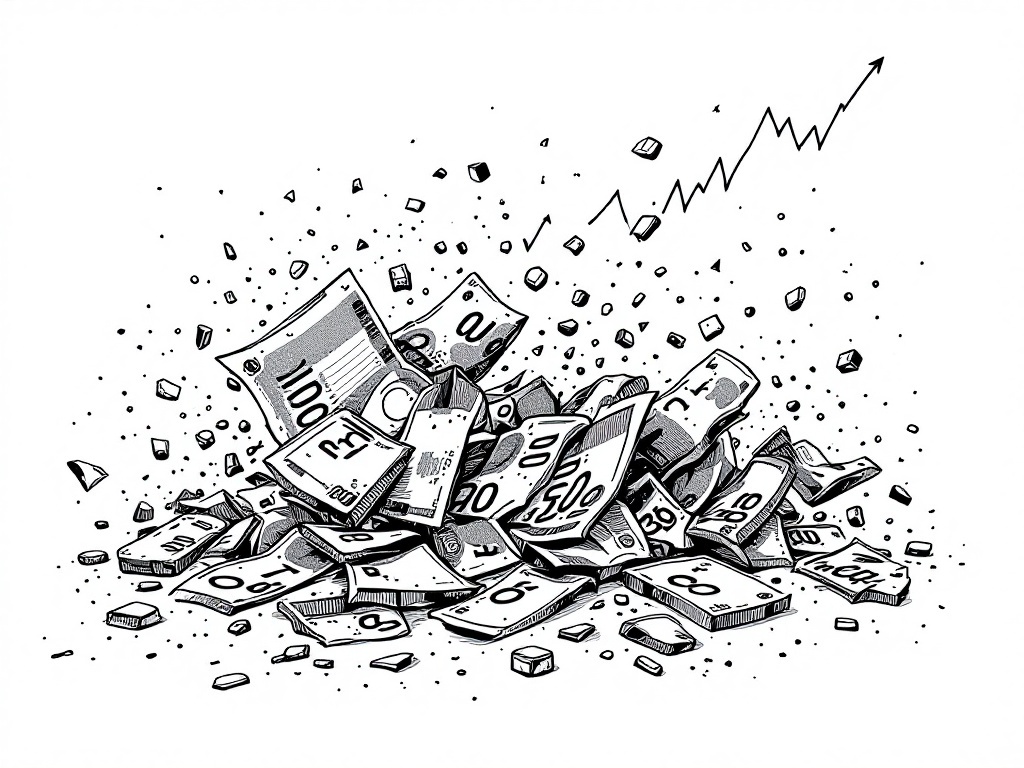Russia's Economic Struggles Threaten War Efforts in Ukraine

Moscow, Sunday, 8 December 2024.
Russia’s weakening economy, marked by inflation and sanctions, raises questions about its ability to sustain the conflict in Ukraine, despite limited domestic pressure on Putin to cease hostilities.
Economic Indicators Paint Grim Picture
Russia’s economy is showing significant signs of distress as it enters 2025, with inflation running at over 8% [4] and interest rates reaching a staggering 21-year high of 21% [6]. The ruble has experienced dramatic volatility, falling to 113 rubles per US dollar in late November 2024 [3], one of its lowest values since the Soviet Union’s collapse. German Gref, CEO of state-run Sberbank, has warned of ‘significant signals of economic slowdown,’ particularly in housing construction and investment [2].
Labor Shortages and Military Spending Strain Resources
The Russian economy faces a peculiar challenge with unemployment at a critically low 2.3% [6], reflecting severe labor shortages rather than economic health. This shortage is largely attributed to military mobilization for the Ukraine conflict [6]. The situation is particularly dire in the public sector, where education and healthcare workers are bearing the brunt of budget reallocations toward military spending [1]. The International Monetary Fund forecasts GDP growth of 3.6% for 2024 [4], but experts warn this growth is unsustainable due to structural economic issues.
Sanctions Finally Showing Impact
Recent U.S. sanctions targeting Gazprombank and other financial institutions, set to take effect on December 20, 2024 [4], are creating unprecedented pressure on Russia’s financial system. Alexandra Prokopenko from the Carnegie Russia Eurasia Center confirms that ‘sanctions are finally hitting the Russian economy’ [1]. The Central Bank has been forced to halt foreign purchases of rubles for the remainder of 2024 [5], while inflation continues to accelerate, reaching the highest November increase in a decade [5].
Limited Impact on War Decisions
Despite these economic challenges, experts suggest that economic pressure alone may not be sufficient to alter Russia’s military strategy in Ukraine. The high level of domestic repression, which has increased significantly since the invasion [1], limits internal pressure on Putin regarding economic struggles. As Prokopenko notes, ‘economy can bite, sanctions can bite, but it’s not the thing which is going to make him stop the war’ [1]. This suggests that while Russia’s economy is weakening, the impact on its military operations may be less immediate than Western policymakers hoped.
Sources
- www.npr.org
- www.themoscowtimes.com
- www.counteroffensive.news
- www.rferl.org
- www.newsweek.com
- www.telegraph.co.uk